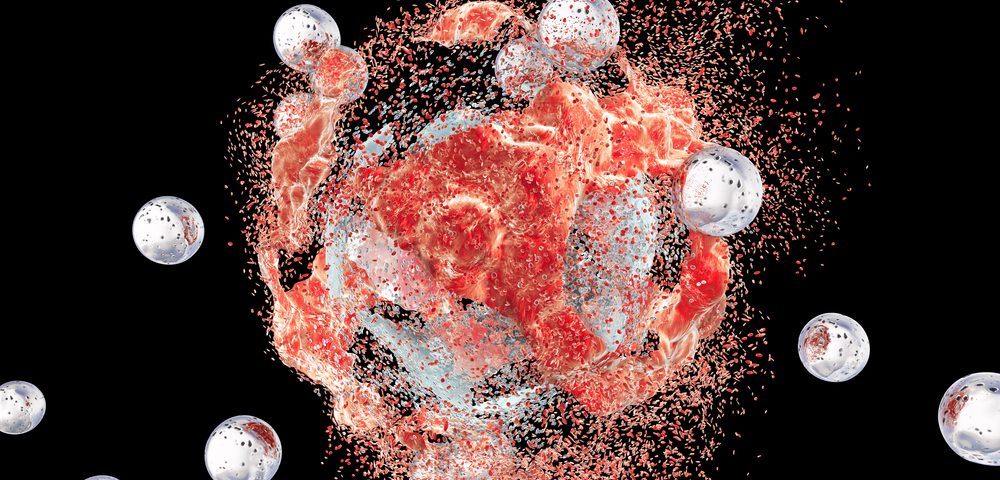Nanoparticles derived from edible ginger effectively delivered the chemotherapy agent Adriamycin (doxorubicin) into tumor cells in a mouse model of colon cancer, inducing tumor cell death while largely sparring healthy cells, a new study reported, suggesting that “nanovectors derived from edible plants” offer a safer and more efficient way of targeting cancer treatment.
The findings, published in Molecular Therapy in the study, “Edible Ginger-derived Nano-lipids Loaded with Doxorubicin as a Novel Drug-delivery Approach for Colon Cancer Therapy,” may have the potential to decrease the toxicity and adverse effects of free chemotherapeutic agents.
Chemotherapy remains the gold standard treatment approach for patients with colon cancer, a disease that is the second-leading cause of cancer-related mortality worldwide. But current chemotherapy strategies cannot distinguish malignant from healthy cells, lessening the drug’s ability to kill cancer cells and causing toxic effects in healthy cells.
Nanotechnology has shown considerable promise in overcoming drug-delivery problems for chemotherapy agents. Synthetic nanoparticles can serve as delivery vehicles for therapeutics, bringing RNA molecules, proteins, and pharmacological drugs directly into a tumor site. But these artificial nanoparticles can also have potential toxic effects, and face severe limitations in large-scale production, including high cost.
Researchers speculated that nanoparticles from natural sources, such as edible plants, could address these limitation. These plants are consumed regularly, have no known potential toxicity to humans, and can be produced in large quantities.
The team, led by Didier Merlin, isolated a specific nanoparticle from Zingiber officinale, the edible ginger, and assessed its ability to target the tumor cells and deliver Adriamycin.
First, the researchers addressed whether ginger-derived nanoparticles were toxic to healthy tissues. Results revealed that the nanoparticles alone could be taken up by cancer cells in culture, without affecting cell viability. Similar findings were reported when the nanoparticles when injected in the bloodstream of mice in models of colon cancer. Importantly, the researchers did not observe any hemolysis, a serious limitation for nanoparticle use in in vivo application, suggesting that these particles are not toxic to erythrocytes (red blood cells) following intravenous injection.
Researchers then modified the ginger-derived nanoparticles to incorporate folic acid (FA), a molecule with high affinity for the folate receptors that are highly expressed on many tumors, and are almost undetectable on healthy cells. By doing this, they generated nanoparticles with a high affinity to tumor cells.
Next, the research team assessed whether these modified particles could be used to transport and deliver chemotherapeutic drugs directly into a tumor site, largely reducing the severe side effects of chemotherapy. Their findings demonstrated that the FA nanovectors could efficiently load Adriamycin, deliver the drug into the cancer cells, and successfully inhibit tumor growth.
Importantly, using FA nanoparticles to deliver Adriamycin showed better anti-tumor effects than directly injecting Adriamycin into the diseased mice. Ginger-derived nanoparticles were also found to be better vehicles for drug delivery than current commercially available options.
“Our results show that FA nanovectors made of edible ginger-derived lipids could shift the current paradigm of drug delivery away from artificially synthesized nanoparticles toward the use of nature-derived nanovectors from edible plants,” Merlin, a professor in the Institute for Biomedical Sciences at Georgia State, and a Research Career Scientist at the VA Medical Center, said in a press release. “Because they are nontoxic and can be produced on a large scale, FA nanovectors derived from edible plants could represent one of the safest targeted therapeutic delivery platforms.”


